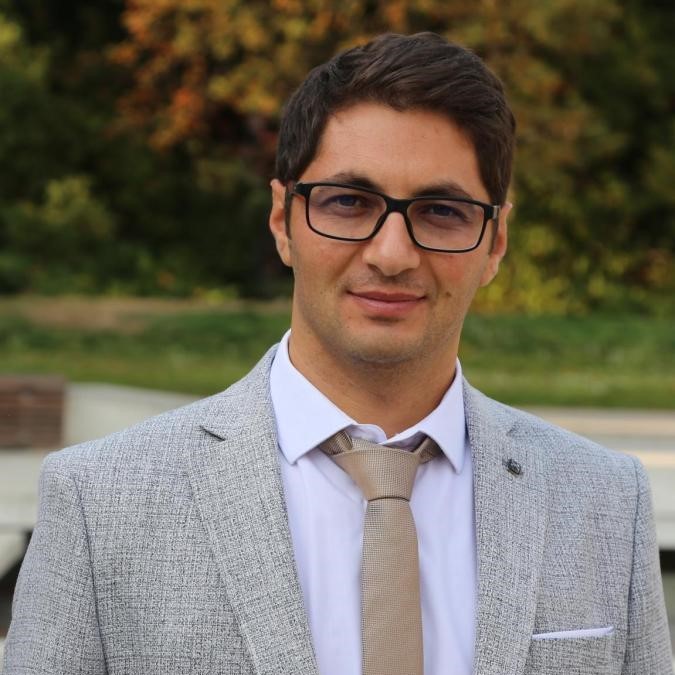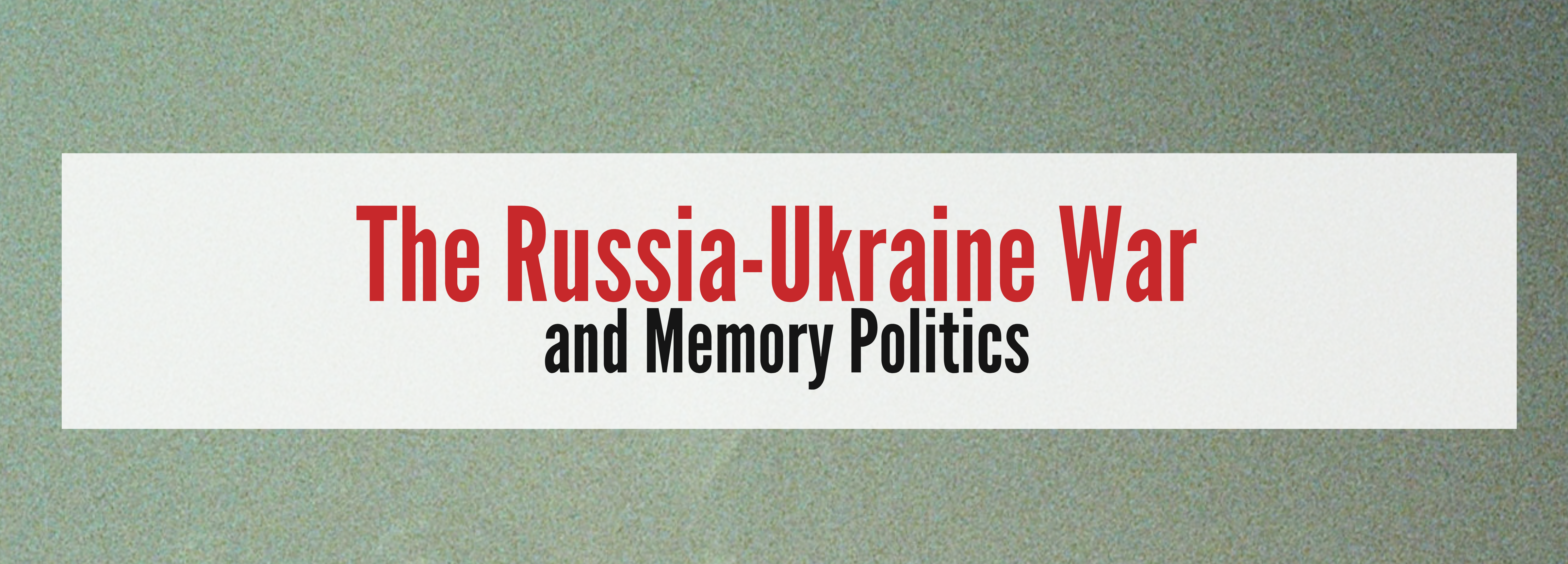The Russian-Ukrainian War: Why did it Happen? How did it Start? How is it Going?
-
Ibrahim Muradov, Political Science
Coach House, Green College, UBC and livestreamed
Tuesday, October 17, 5-6:30pm with reception to followin the series
The Russia-Ukraine War and Memory Politics -
Among other explanations, geopolitical justifications predominate the literature on why Russia invaded Ukraine. To unpack the driving force behind the war in Ukraine, this reasoning focuses primarily on relations between the West and Russia, ignoring the will of Ukraine. This research aims to comprehend the war inductively by revealing Ukraine's agency. Traditional realist international relations theory predicts that the current international structure, which is a continuation of the Cold War-era bipolar world order, prevents Ukraine from pursuing independent foreign policy trajectories. As a result, the West has consistently been reluctant to grant Ukraine direct membership to the EU or NATO, indicating that it recognizes Ukraine as falling under Russia’s sphere of influence. The main focus of this talk is on the question of why, despite the constraints of international structure and geopolitics, Kyiv pursues the pro-Western foreign policy that resulted in Russia's invasion of Ukraine. To seek the origin of Kyiv's pro-Western foreign policy, this talk explores the internal dynamics of the country. The key finding is that since Ukraine's independence, its civil society has increasingly driven the Ukrainian government to democratize the country, which ultimately means forming a pro-Western foreign policy. In other words, Ukrainian governments, driven by the civil society, challenged the geopolitical imperatives which led Russia’s invasion of Ukraine (punishment of international structure). However, Ukrainians have attempted to defy the international structure by fighting back, which, in other terms, means a fight for freedom.
 Ibrahim Muradov joined UBC as a Postdoctoral Research Fellow in September 2022. Dr. Muradov has been a faculty member in the Department of International Relations and Audit at Dnipro University of Technology since 2020. He received his PhD in International Relations from Middle East Technical University (Ankara, Turkey) in 2019. His research interests cover armed conflicts in former Soviet republics, particularly Ukraine. He has published a number of articles on the war in Ukraine, one of the most recent titled “Russia’s War Against Ukraine: A Security Dilemma or What?”. Additionally, he authored two books in 2021; one on Eurasian Studies and another on Conflicts and Peace Studies. Ibrahim Muradov teaches courses such as “Introduction to Eurasian Studies,” “Introduction to Peace and Conflict Studies,” and “IR Theory,” among others. As a Postdoctoral Fellow, he also delivers a course titled “The Russia-Ukraine War: Its Causes and Impacts on World Politics” to fourth-year students at UBC. Dr. Muradov has been personally affected by Russia’s unprovoked war against Ukraine and maintains his responsibilities at Dnipro University of Technology (Ukraine) remotely.
Ibrahim Muradov joined UBC as a Postdoctoral Research Fellow in September 2022. Dr. Muradov has been a faculty member in the Department of International Relations and Audit at Dnipro University of Technology since 2020. He received his PhD in International Relations from Middle East Technical University (Ankara, Turkey) in 2019. His research interests cover armed conflicts in former Soviet republics, particularly Ukraine. He has published a number of articles on the war in Ukraine, one of the most recent titled “Russia’s War Against Ukraine: A Security Dilemma or What?”. Additionally, he authored two books in 2021; one on Eurasian Studies and another on Conflicts and Peace Studies. Ibrahim Muradov teaches courses such as “Introduction to Eurasian Studies,” “Introduction to Peace and Conflict Studies,” and “IR Theory,” among others. As a Postdoctoral Fellow, he also delivers a course titled “The Russia-Ukraine War: Its Causes and Impacts on World Politics” to fourth-year students at UBC. Dr. Muradov has been personally affected by Russia’s unprovoked war against Ukraine and maintains his responsibilities at Dnipro University of Technology (Ukraine) remotely.
Russia's full-scale invasion of Ukraine in February 2022 has led to a heretofore unseen surge of international interest in Ukraine. A part of the Soviet Union for over 70 years, Ukraine achieved its independence in 1991, starting the process of its democratization. Over the next three decades, Ukrainians have brought about significant political and societal changes in their country. But what is the Ukrainian memory of the Soviet past? What was the role of civic society in re-shaping Ukrainian memory of its Soviet past? How do Russians view the Soviet period of Ukraine? And now, after Russia’s two invasions of Ukraine and the tragic wars that have ensued, what changes are taking place in the collective culture of remembering among the people of Ukraine?
This series of lectures series thus aims to consider how conflicts are shaped by memory, and how they affect the memory and psyche of a people under attack.
Series Conveners: Nataliia Ivchyk, Political Sciences, Rivne State University and John Grace Memorial Holocaust Historian in Residence at Green College; and Richard Menkis, History

-
Unless otherwise noted, all of our lectures are free to attend and do not require registration.
Custom Lecture Fields
|